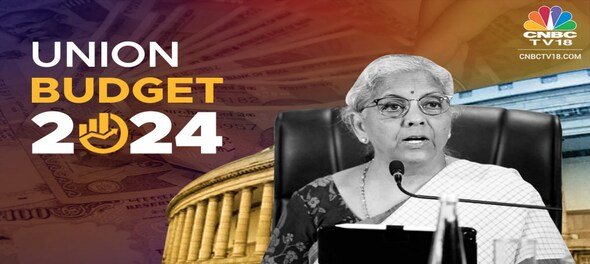
"As our Prime Minister firmly believes, we need to focus on four major castes. They are, ‘Garib’ (poor), ‘Mahilayen’ (women), ‘Yuva’ (youth) and ‘Annadata’ (food provider i.e. farmer)," said Finance Minister Nirmala Sitharaman in her her Budget 2024 presentation.
Sitharaman's comment becomes significant coming in the wake of a raging political debate over the caste census — last released in 1931; the data collected in 2011 was never released — in the country.
"Social justice is not just a slogan. We have shown that it's a governance model for us," she emphasised in her post-budget press conference.
For the uninitiated, the traditional Hindu community in India comprises four communities in descending order of social status and privilege — Brahmin (priests), Kshatriya (warriors), Vaishya (merchants) and Shudra (workers with menial jobs and untouchables).
In that context, Sitharaman's attempt to reimagine caste categories can be seen as an attempt to reinforce the party's resistance to the growing demand for a caste census from rival political parties across the country.
Bihar has already conducted one and released the results. Andhra Pradesh has initiated the process for a similar survey. Regional leaders in other states are also debating it.
The idea is that government policies should be reshaped based on the latest caste composition of the populace to ensure better delivery of social justice.
The Bharatiya Janata Party (BJP), which Sitharaman belongs to, has resisted these demands saying such an exercise will deepen the cracks caused by the discriminatory caste system.
Simultaneously, supporters of the BJP believe that the popularity of Narendra Modi transcends traditional caste loyalties, which are deeply embedded in Indian society and the country's politics.
After decades of political efforts to stop the discrimination and dilute caste identities, it's still, very often, said that Indians don't cast their votes, they vote their castes.
India's centuries-long history of caste-based discrimination has been a flashpoint for social and political rivalries across the country since the country's independence.
Despite Modi's political might, unprecedented as it is in recent decades of Indian politics, the lines between the progressives (who want affirmative action to compensate for caste-based discrimination) and the conservatives who oppose such policies won't be erased easily.
These are some of the government's achievements and initiatives targeting each segment, or caste, highlighted by the Finance Minister.
For the poor:
Addressing youth concerns,
For women empowerment
For farmers
First Published: Feb 1, 2024 12:01 PM IST
Check out our in-depth Market Coverage, Business News & get real-time Stock Market Updates on CNBC-TV18. Also, Watch our channels CNBC-TV18, CNBC Awaaz and CNBC Bajar Live on-the-go!


Sam Pitroda's new controversy, says 'people in East look like Chinese, South like Africans'
May 8, 2024 1:28 PM
PM Modi's 'Apni Kashi' set for massive 5km, 4-hour-long road show on May 13
May 8, 2024 11:25 AM

